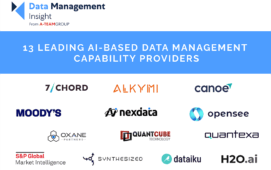The Bank for International Settlements’ (BIS) Irving Fisher Committee (IFC), which was set up to discuss issues related to statistical monitoring by regulators across the globe, is planning to discuss the data gaps highlighted by the financial crisis at its fifth annual conference in Basel this month. Given the theme, it is likely that discussion may turn to the US Office of Financial Research developments in the US and the European Central Bank’s (ECB) proposals for a reference data utility.
The IFC is seemingly keen to identify a series of initiatives to help the regulatory community address the data gaps that were revealed as a result of the financial crisis. Accordingly, the themes highlighted for the event are around how to better track counterparty exposures across borders and the need to harmonise international standards, among other more methodologically focused items.
The BIS notes in its blurb about the event: “Currently various discussions are taking place in international groups, including the G20, the Financial Stability Board, the IMF, BIS and ECB, as well as within central banks and other statistical agencies, on addressing possible information gaps revealed by the crisis. In this context information gaps are seen to cover not only macroeconomic statistics and related statistical reporting but also reporting for supervisory purposes as well as public disclosure by individual institutions and market information more generally. Without duplicating the discussions in other bodies, it could be useful if users and compilers of statistics could share their experience in initiating work to address some of the information gaps.”
Given that the ECB’s proposals are being pushed by a statistician, Francis Gross who is head of the central bank’s external statistics division, the idea of a data utility is likely to crop up in discussions. After all, the imposition of a more standardised set of reference data items on the financial services industry for systematic risk tracking purposes has been set in motion in the US, why not the rest of the world?
Given its position as a key body for driving regulatory change, it will be vital for any such endeavour to gain the support of the BIS. The regulatory body has already noted the challenges inherent in systemic risk monitoring in a working paper, published in June this year, and is therefore aware of the benefits of changing the way that such data is collected and aggregated across the global regulatory community.
The Fifth IFC Conference on “Initiatives to address data gaps revealed by the financial crisis” will take place in Basel between 25-26 August 2010. The full list of topics up for discussion is available to view here.
Subscribe to our newsletter




